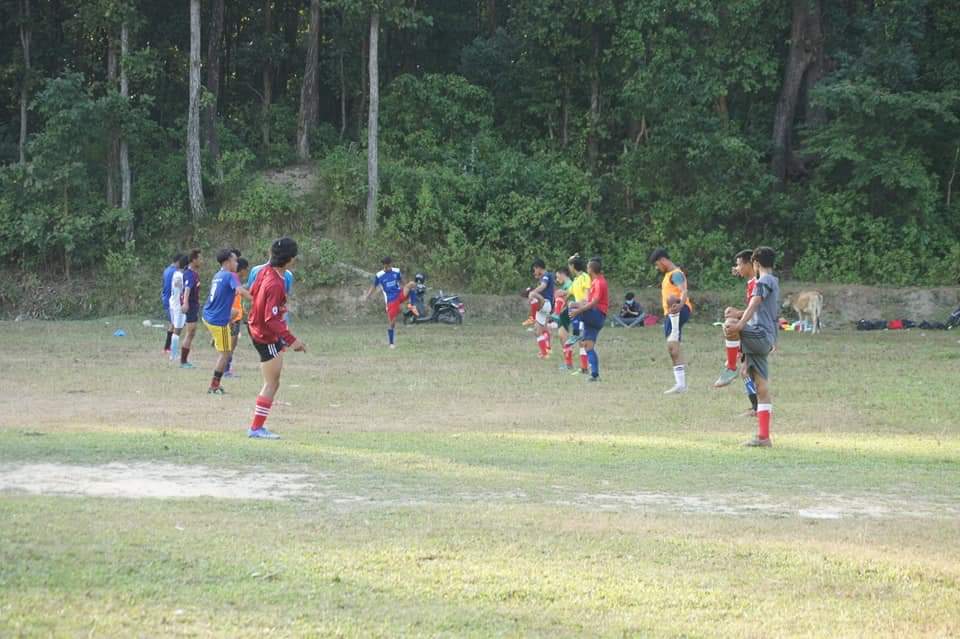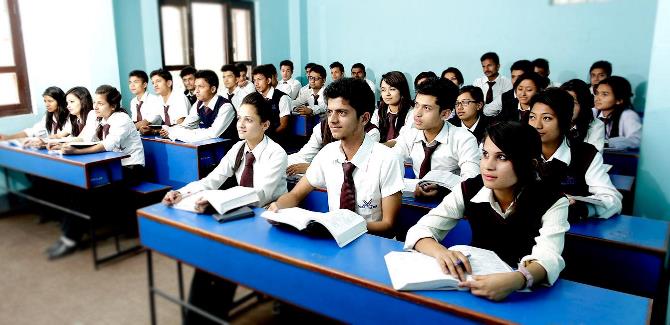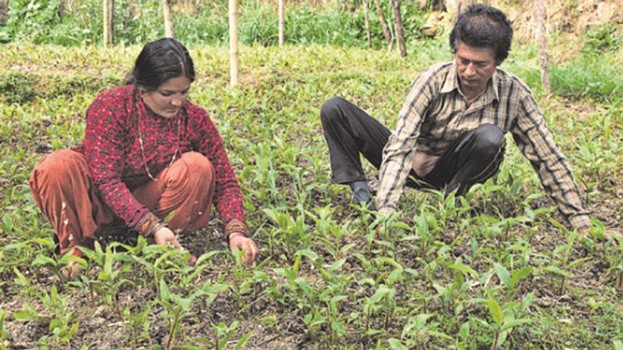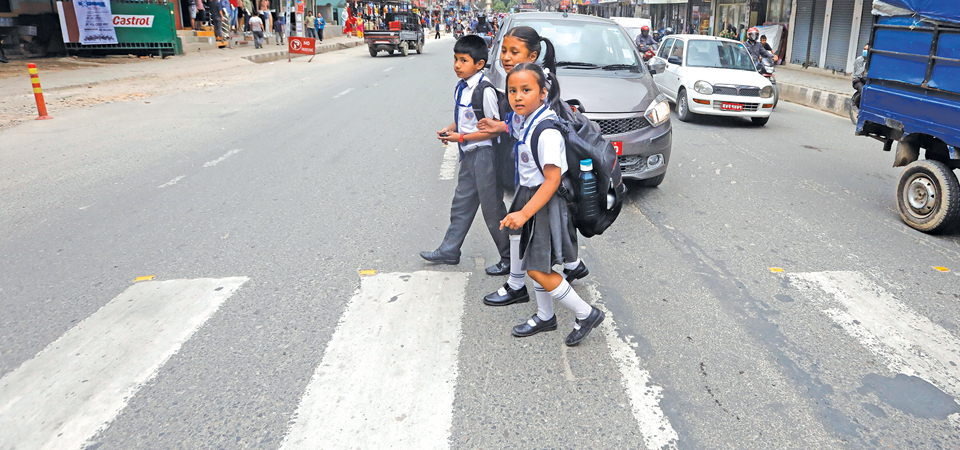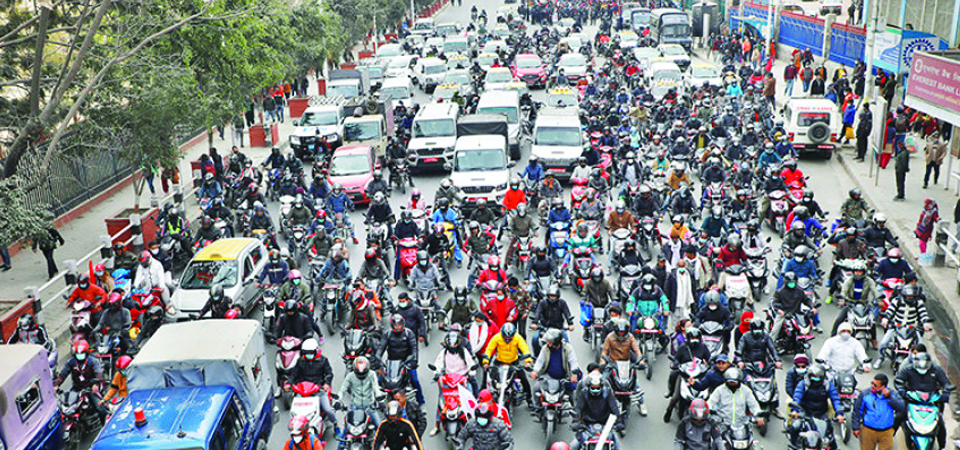Measures to eradicate violence against women necessary throughout the year: Stakeholders
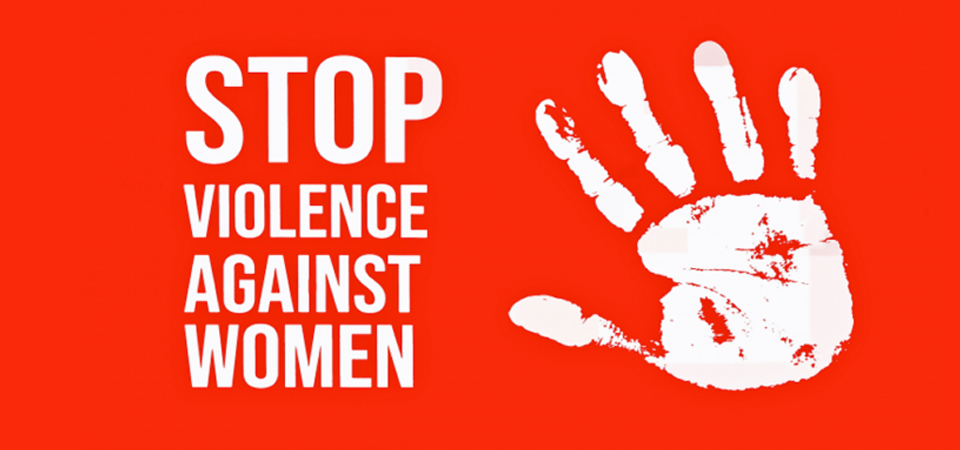
By Nayak Paudel
Kathmandu, Nov. 28: Nepal has been a part of the global community to launch the 16 days of activism against gender-based violence for many years now.
The campaign kicked off on November 25 and will run until December 10. While November 25 marks the international day for the elimination of violence against women, December 10 is the Human Rights Day.
Under the Nepali calendar, the 16-day campaign falls on the month of Mangsir. Data shows that during the month of Mangsir, the rate of violence against women declines but the scenario is worrisome in other months.
The three-year factsheet on gender-based violence from 2017/18 to 2019/20 by the Nepal Police shows that cases of sexual violence against women were the least in Mangsir but the rate increased in the following months.
The United Nations defines violence against women as “any act of gender-based violence that results in, or is likely to result in, physical, sexual, or mental harm or suffering to women, including threats of such acts, coercion or arbitrary deprivation of liberty, whether occurring in public or in private life.”
Similarly, the factsheet also revealed that gender-based violence constituted 40 per cent of the total crimes recorded during the period. Domestic violence then occupied 77 per cent of the cases related to gender-based violence.
A factsheet on gender-based violence from November 21, 2017 to September 30, 2021 by the National Women Commission also reveals that the situation calls for more activities and support from the government and concerned authorities.
A 2018 analysis of prevalence data from 2000-2018 across 161 countries and areas by the World Health Organisation (WHO) indicated that about one in three women worldwide have been subjected to either physical and/or sexual intimate partner violence or non-partner sexual violence in their lifetime.
Likewise, the Nepal Police report also indicates that the majority of the victims and perpetrators of gender-based violence did not have proper education.
“However, even those with higher level of education have been found to be perpetrating violence against women. Investigation, mediation and legal fights are difficult in cases related to violence against women because of the cultural and societal impact on the victim. The victims struggle for a quality life after raising their voices against the perpetrators,” said a senior officer at Women and Children Cell in Kalimati on condition of anonymity.
According to the officer, there are many women who rather hide the violence fearing the consequences later.
Activists argued that since reports suggested that gender-based violence, including sexual and domestic violence, are mostly committed by known individuals, an effective approach is needed.
“Many women still fear to come forward because they are not assured justice and a proper life thereafter. Many do not even know that government policies assist them in fighting for justice,” said Sharu Joshi, co-founder of Inter-Generational Feminist Forum.
A recent report by Women Rehabilitation Centre (WOREC) regarding a detailed study on violence against women showed that many women either bear the violence or hide it because of social norms, family, economic insecurity and fear, among other factors.
Joshi, who has also worked for the government of Nepal and UN Agencies in the field of gender and development, informed that women are at risk of violence at home, workplace and even public places.
“Violence against women accumulates several discriminatory behaviours alongside abuses. Crimes against women show that implemented laws are being defied and more needs to be done,” said Joshi.
Studies from the National Judicial Academy show that Nepali women face several barriers on the way to legal justice following which they discard the option.
Speaking to The Rising Nepal, Chairperson for the National Women Commission Kamala Parajuli stressed that the government planned to work effectively throughout the year against gender-based violence.
“A strong effort during the 16-day campaign helps generate awareness from the grassroots. The period has a great impact on the fight against gender-based violence, due to which it also shows why we need to be similarly active throughout the year,” said Parajuli.
Parajuli informed that educational institutions must initiate proper teachings on gender equality.
“We are also coordinating with political parties as their cadres have access to the public across the country and can play a major role in ending violence against women through awareness and helping file a complaint. Unless every member of the community unites against gender-based violence, it cannot be eradicated,” said Parajuli.
Speaking at the launching of the 16-day campaign on Thursday, secretary at Ministry of Women, Children and Senior Citizen Yam Kumari Khatiwada said, “The government has adopted a zero-tolerance policy to root out the tendency of gender-based violence and has forwarded dozens of women-centred laws to guarantee the safety and well-being of women.”
Recent News

Do not make expressions casting dout on election: EC
14 Apr, 2022
CM Bhatta says may New Year 2079 BS inspire positive thinking
14 Apr, 2022
Three new cases, 44 recoveries in 24 hours
14 Apr, 2022
689 climbers of 84 teams so far acquire permits for climbing various peaks this spring season
14 Apr, 2022
How the rising cost of living crisis is impacting Nepal
14 Apr, 2022
US military confirms an interstellar meteor collided with Earth
14 Apr, 2022
Valneva Covid vaccine approved for use in UK
14 Apr, 2022
Chair Prachanda highlights need of unity among Maoist, Communist forces
14 Apr, 2022
Ranbir Kapoor and Alia Bhatt: Bollywood toasts star couple on wedding
14 Apr, 2022
President Bhandari confers decorations (Photo Feature)
14 Apr, 2022



